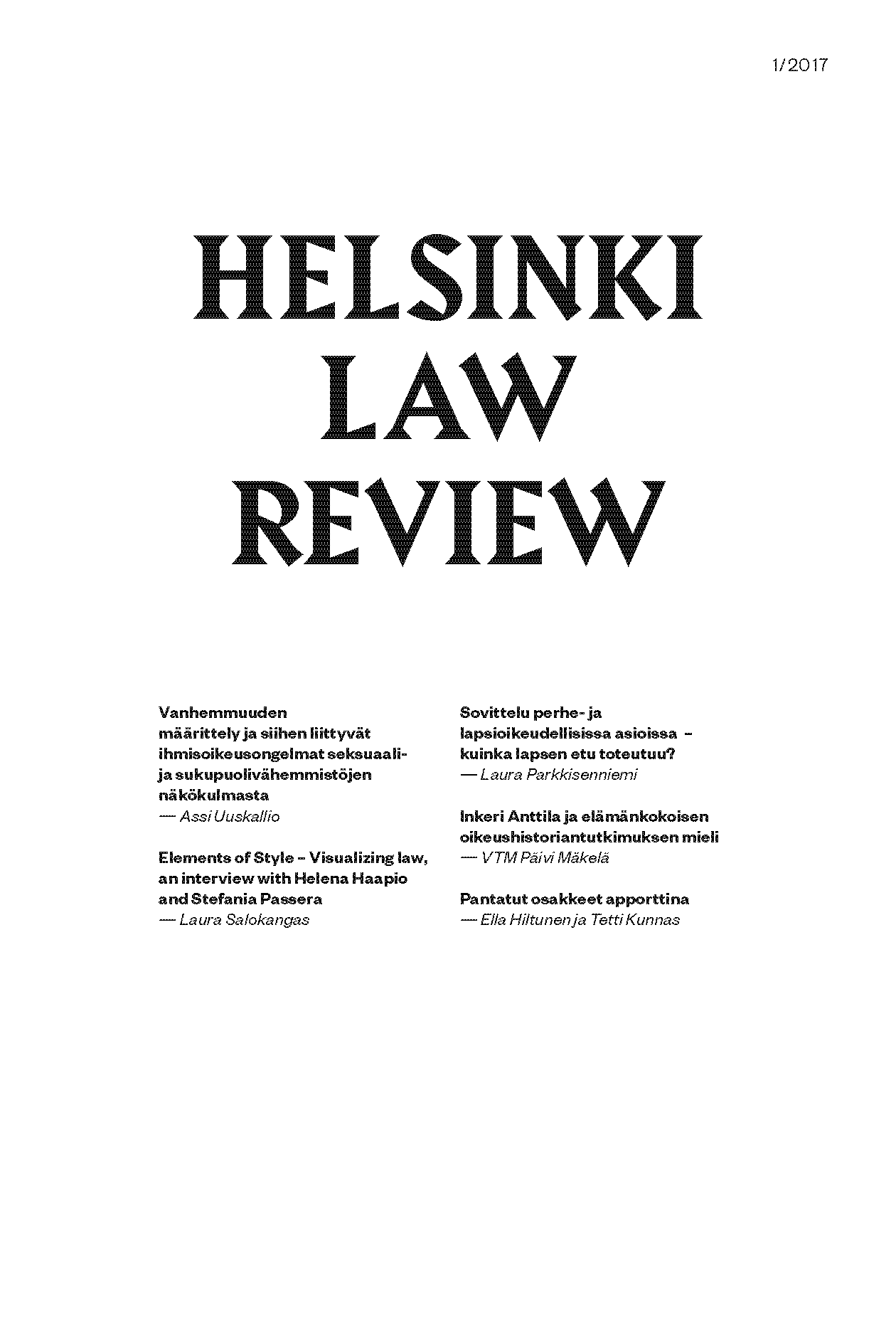Defining the Parenthood and Related Human Rights Issues from the Point of View of the Sexual and Gender Minorities
Keywords:
parenthood, protection of family life, sexual orientation, gender indentity, discrimination, human rightsAbstract
The purpose of this article is to shed light to the structural discrimination of sexual and gender minorities in family that often goes unnoticed. The main argument is that the discrimination is essentially tied with the hetero- and cisnormative conceptions of family and parenthood that has excluded said minorities from the scope of family-related rights both under Finnish legislation and in the ECHR’s case law. When it comes to sexual and gender minorities, parenthood and family ties are defined by emphasizing the biological aspects of parenthood in an inconsequent manner compared to hetero- and cis-people. As a result, the ECHR is failing to adhere to its own principles, thus excluding the minorities from the scope of Article 8. In Finnish legislation, parenthood is defined in a conspicuously incoherent manner to the disadvantage of sexual and gender minorities. By changing the legal understanding of family, or rather, by applying the defining principles in a consequent manner, equal rights for said minorities could be achieved.


